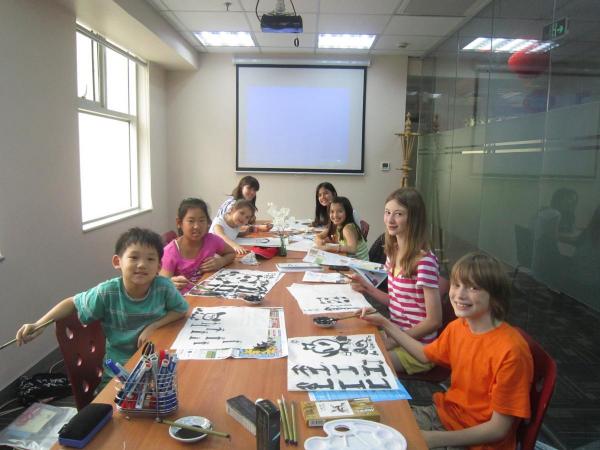Â
How Should Kids Learn Chinese?
Â
Experts and parents agree that, when it comes to learning a foreign language, the younger one, starts the better. Indeed, some studies show that learning a second language at early age increases fluency and the development of a native accent. These benefits are critical especially when learning Chinese. But what’s the proper way for kids to learn Mandarin?
Â
Children learn languages differently from adults
“Combining lessons with a fun activity is the best way to get kids engaged with a language,” says teacher Eric Mei from Mandarin House. “Kids have short attention spans. You need to use toys, pictures, games and competition to keep them engaged. If not, you will lose them,” he continues. That way, children can combine all these inputs to create words and understand the rhythm and structure of sentences.
Kids learn better when using graphic or animated teaching methods. Their language skills improve when they learn by doing things by themselves and – especially – by playing.
Â
What options do parents have?
Outside China, parents are beginning to enroll their kids in Mandarin immersion programs, hiring Chinese tutors and nannies, and buying Mandarin cartoons or video games. They see Chinese as the language of the future and want to help their kids prepare.
But what if you are in China? Kids are constantly receiving Chinese inputs, but parents can help their progress by taking advantage of a wide range of options.
The most immersive option is to put kids into a local Chinese school. In fact, some schools offer a two-way immersion program combining Chinese and English education. However, some parents think that a local school is too much and decide to enroll their kids for after-class lessons combined with activities in Chinese.
Parents should consider cultural activities, but a more effective option is enrolling kids in Chinese-language sport activities. That way, they are in contact with native Chinese kids and get Chinese instruction while playing.
The most popular option for expats living in China (or abroad) is to enroll their kids in a Chinese summer camp. This allows students to learn in an immersive Chinese, but also very international environment. This kind of experience combines Chinese lessons with activities and excursions. Normally, summer camps also offer home stays or residence accommodations with Chinese monitors, so that kids practice Chinese all the time.
“Whatever a method you choose for [your] kids, it has to be fun,” says Eric Mei. “You can’t impose a rigid timetable or dry memorization. They learn at their own pace, so you have to follow their rhythm.”



